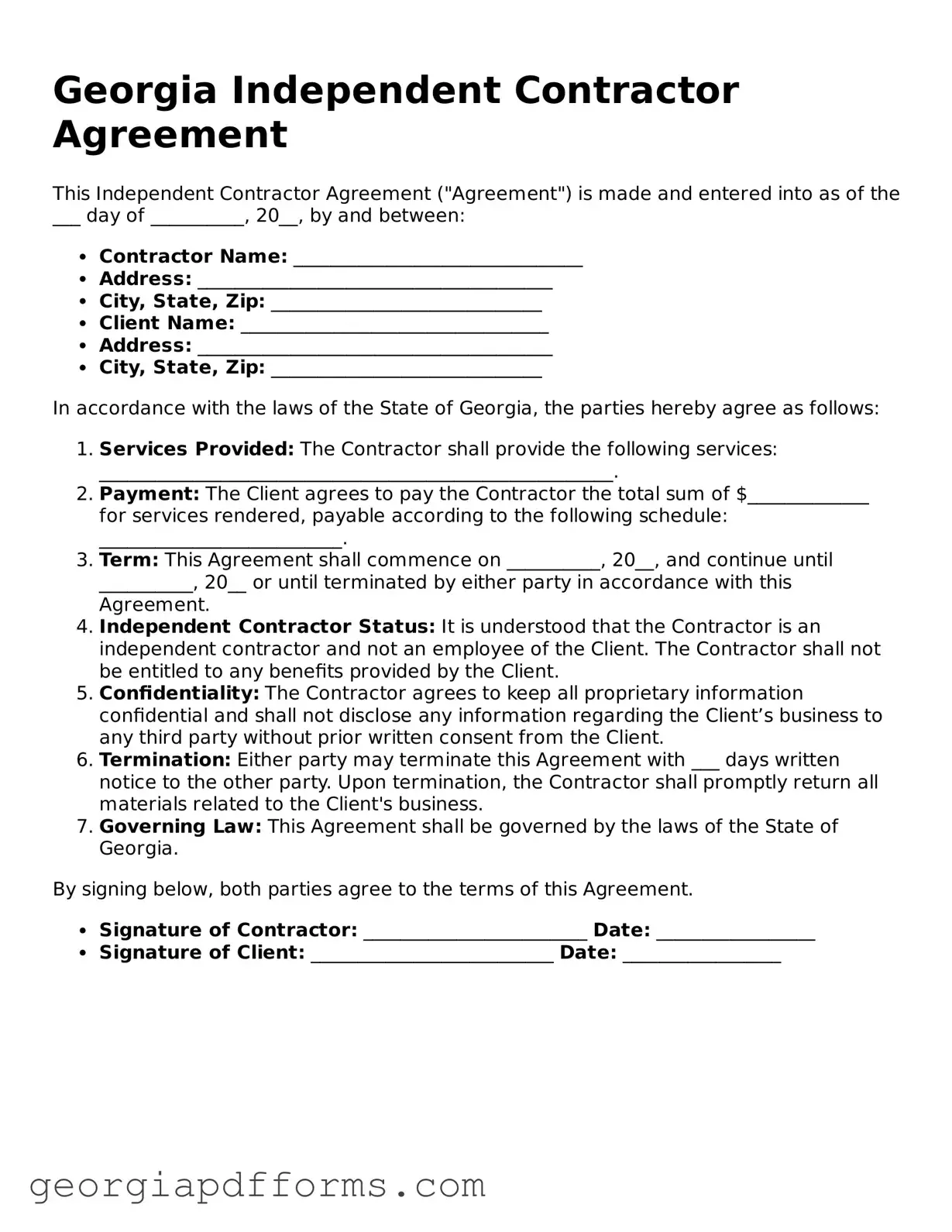What is a Georgia Independent Contractor Agreement?
A Georgia Independent Contractor Agreement is a legal document that outlines the terms of a working relationship between a business and an independent contractor. This agreement specifies the nature of the work to be performed, payment details, deadlines, and the rights and responsibilities of both parties. It helps clarify the expectations and protects both the contractor and the hiring entity.
Why is it important to have an Independent Contractor Agreement?
Having an Independent Contractor Agreement is crucial because it provides a clear understanding of the working relationship. It helps prevent misunderstandings and disputes by laying out specific terms. Additionally, it can protect both parties legally if any issues arise regarding the scope of work or payment. A well-drafted agreement can also clarify that the contractor is not an employee, which has implications for taxes and benefits.
What should be included in the agreement?
The agreement should include several key components. These typically encompass the scope of work, payment terms, deadlines, confidentiality clauses, and termination conditions. It is also advisable to include information about ownership of work products and any necessary insurance requirements. Each section should be detailed enough to avoid ambiguity, ensuring both parties know their obligations.
How do I determine if someone is an independent contractor or an employee?
Determining whether someone is an independent contractor or an employee involves examining the nature of the working relationship. Key factors include the degree of control the business has over the worker, the worker's independence in performing tasks, and whether the work is integral to the business. The IRS provides guidelines to help classify workers correctly, and misclassification can lead to legal issues, so it’s essential to understand these distinctions.
Can an Independent Contractor Agreement be modified after it is signed?
Yes, an Independent Contractor Agreement can be modified after it has been signed, but both parties must agree to any changes. It is advisable to document any modifications in writing to avoid confusion. This ensures that all parties have a clear understanding of the new terms and helps maintain a professional relationship moving forward.
What happens if one party does not fulfill their obligations under the agreement?
If one party fails to fulfill their obligations, it may lead to a breach of contract. The other party can seek remedies, which may include demanding performance, seeking damages, or terminating the agreement. It is essential to address any issues promptly and communicate openly to resolve disputes before they escalate.
Is it necessary to have a lawyer review the agreement?
While it is not strictly necessary to have a lawyer review the agreement, it is highly recommended. A legal professional can ensure that the document complies with Georgia laws and adequately protects your interests. They can also help identify any potential issues or areas for improvement, providing peace of mind for both parties involved.

